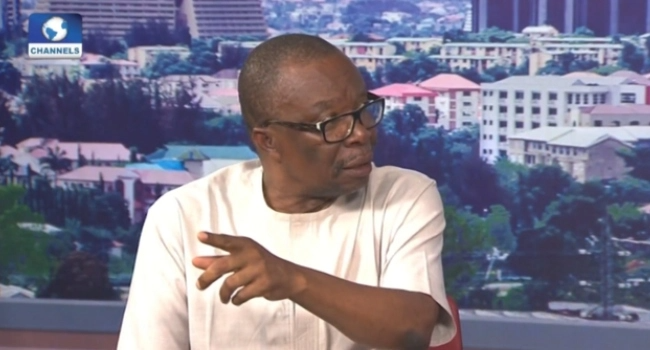The former national president, Academic Staff Union of Universities (ASUU), Emmanuel Osodeke said ASUU’s resilience saved public universities in the country from collapse during the past administration.
Osodeke made the assertion at a grand reception held in his honour at the ASUU Secretariat, Michael Okpara University of Agriculture, Umudike (MOUAU), Abia State.
His words, “Our struggles kept our public universities from collapsing like other national institutions such as the Nigerian Airways and the oil refineries.”
He decried the poor welfare conditions of the members which attributed to “the mass exodus of academics commonly referred to as brain drain to better working conditions abroad”.
The former president urged all levels of government in the country to invest significantly in public universities, which, he said, still account for 95% of the student population in the country.
The unionist enumerated his achievements to include removal of universities from the Integrated Payroll and Personnel Information System “which now enables many professors to retire with their full benefits”.
At the event, the pro-chancellor and chairman of the MOUAU Governing Council, Fidelis Edeh, stressed that ASUU should transit from resistance to engagement in national development.
Edeh noted. “It is time to move from struggle to strategy. ASUU must now take ownership of this country—not by standing aside, but by fully participating in governance and policy-making.”
Contributing, the vice chancellor of MOUAU, Prof Maduebibisi Iwe commended the former president for his examplary leadership qualities which he described as legendary.
Represented by Nneoma Obasi, he pledged the MOUAU’s commitment to maintaining a harmonious relationship with ASUU and fostering a productive academic environment.
In a remark, ASUU president Chris Piwuna, said his administration will continue in the footpath of his predecessor for university autonomy, improved welfare, and quality education.
The president also reaffirmed that while strike actions remain a global tool for labour negotiations, the ASUU hopes dialogue will prevail.
“Strike is not unique to Nigeria. It’s a global instrument for change. While we do not desire industrial actions, we won’t hesitate to use every legal means to achieve our objectives,” he argued.



